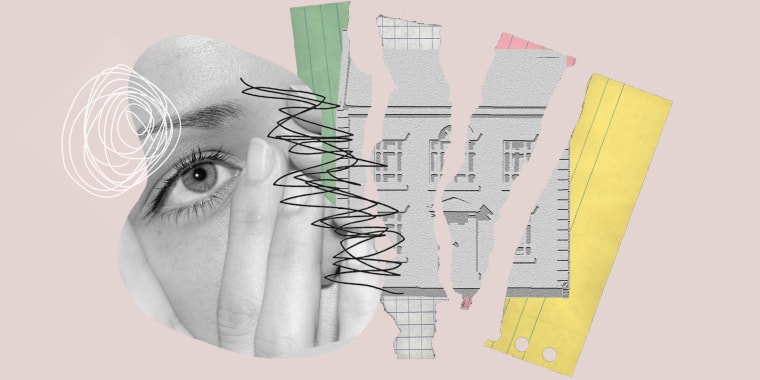As city dwellers flee to the suburbs for some much coveted outdoor space during the pandemic, apartment rental prices have dropped.
For some young people, that means moving to a major city is finally more financially attainable. But as if moving during a pandemic isn’t hard enough, renting for the first time can make it even trickier.
Ready to lease your first apartment? Here’s what you should know first.
1. Prepare for the application process
Even before you find an apartment, you should be mindful of the application documents you'll need, especially income proof. Not only will landlords or property managers have access to your employment history, but they’ll also evaluate what you’ve been spending.
“Behave in a way that you're comfortable knowing that someone is going to scrutinize your bank statements for the last three months,” said Tricia Lee, a Brooklyn-based real estate broker. “You want to be able to show a landlord that you spend responsibly, and that you save for a rainy day.”
Something as small as paying your phone bill early goes a long way in terms of a good impression. Besides financial paperwork, make sure to gather strong references and employment history.
2. Budget every cost
News flash: Renting an apartment is more than just paying rent. The process requires many upfront costs — like an application charge, broker's fee, security deposit and first month’s rent — not to mention long-term payments, like utilities and Wi-Fi.
“In general, we recommend that you have a minimum of three months living expenses saved up,” said licensed real estate salesperson Nicole Christie. “If you have all these costs laid out in front of you, then you can make a better financial decision before you even start your search.”
Saving up three to four months rent before signing a lease alleviates the stress of paying the first month’s rent and security deposit (often the equivalent of an additional month’s rent) upfront. Not sure where to begin budgeting? Christie said most potential renters don’t realize they can pick up the phone and call real estate agents for general advice, free of cost.
3. Evaluate your credit score
To a landlord, a low credit score equals irresponsible spending. “A score of 700 is considered good credit,” Lee said. “If you're below that, whether it be 10, 20 or 40 points, you're more of a risk for that owner.” She suggests creating a TransUnion, Equifax or Experian account to monitor your score every few months.
But don’t give up on apartment hunting if your credit score is less than ideal. To make up for what you lack in credit, you may just need to have stronger income or present a responsible payment history. If you still can’t demonstrate promising expenses, you’ll probably need a co-signer. According to Lee, they have to be able to show they can cover their own finances along with yours.
4. Buy renters insurance
Renters insurance covers everything from theft to a building fire to a roof collapsing. If your clothes, furniture or belongings get stolen or damaged, getting insured guarantees coverage of those possessions. For around $10-$19 a month, renters insurance covers your personal property.
“I always say to my clients, there's no reason for you not to have it,” Christie said. “I've never heard of someone regretting having it; I've only heard people regretting not having it when something goes wrong.”
5. Read the lease terms carefully
Most tenants feel the only power they have when finalizing the lease is signing the contract. But in reality, you have tons of control, and that’s why it’s so important to advocate for yourself during the process.
According to Christie, the first question you should ask yourself after reading the document is, “How am I really protected?” Figuring out what you’re responsible for when it comes to basic damages and understanding the terms for the security deposit are crucial. If some costs seem exorbitant, discuss it with your landlord. “All that is outlined in a lease, you can question before you sign it,” Christie said.
You can even talk to your landlord about clauses you’d like to include in the lease. Christie said if you want to renew the lease in another year, advocate for adding a renewal clause that keeps your rent fixed.
And if you need help understanding contractual terminology, seek out resources online or advice from real estate lawyers if you’re able.


